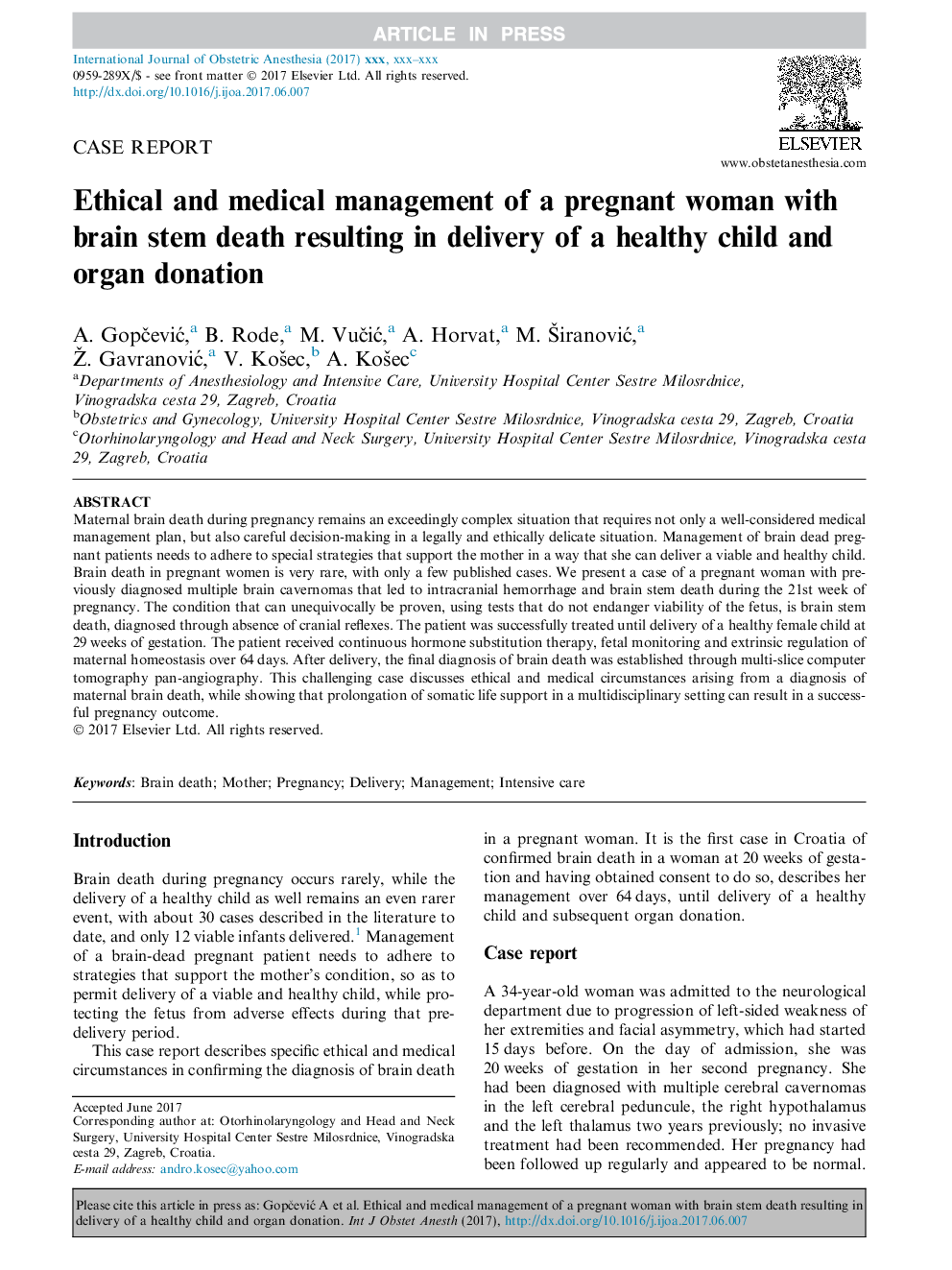| Article ID | Journal | Published Year | Pages | File Type |
|---|---|---|---|---|
| 5582115 | International Journal of Obstetric Anesthesia | 2017 | 5 Pages |
Abstract
Maternal brain death during pregnancy remains an exceedingly complex situation that requires not only a well-considered medical management plan, but also careful decision-making in a legally and ethically delicate situation. Management of brain dead pregnant patients needs to adhere to special strategies that support the mother in a way that she can deliver a viable and healthy child. Brain death in pregnant women is very rare, with only a few published cases. We present a case of a pregnant woman with previously diagnosed multiple brain cavernomas that led to intracranial hemorrhage and brain stem death during the 21st week of pregnancy. The condition that can be proven unequivocally, using tests that do not endanger viability of the fetus, is brain stem death, diagnosed through absence of cranial reflexes. The patient was successfully treated until delivery of a healthy female child at 29Â weeks of gestation. The patient received continuous hormone substitution therapy, fetal monitoring and extrinsic regulation of maternal homeostasis over 64Â days. After delivery, the final diagnosis of brain death was established through multi-slice computerized tomography pan-angiography. This challenging case discusses ethical and medical circumstances arising from a diagnosis of maternal brain death, while showing that prolongation of somatic life support in a multidisciplinary setting can result in a successful pregnancy outcome.
Related Topics
Health Sciences
Medicine and Dentistry
Anesthesiology and Pain Medicine
Authors
A. GopÄeviÄ, B. Rode, M. VuÄiÄ, A. Horvat, M. Å iranoviÄ, Ž. GavranoviÄ, V. KoÅ¡ec, A. KoÅ¡ec,
